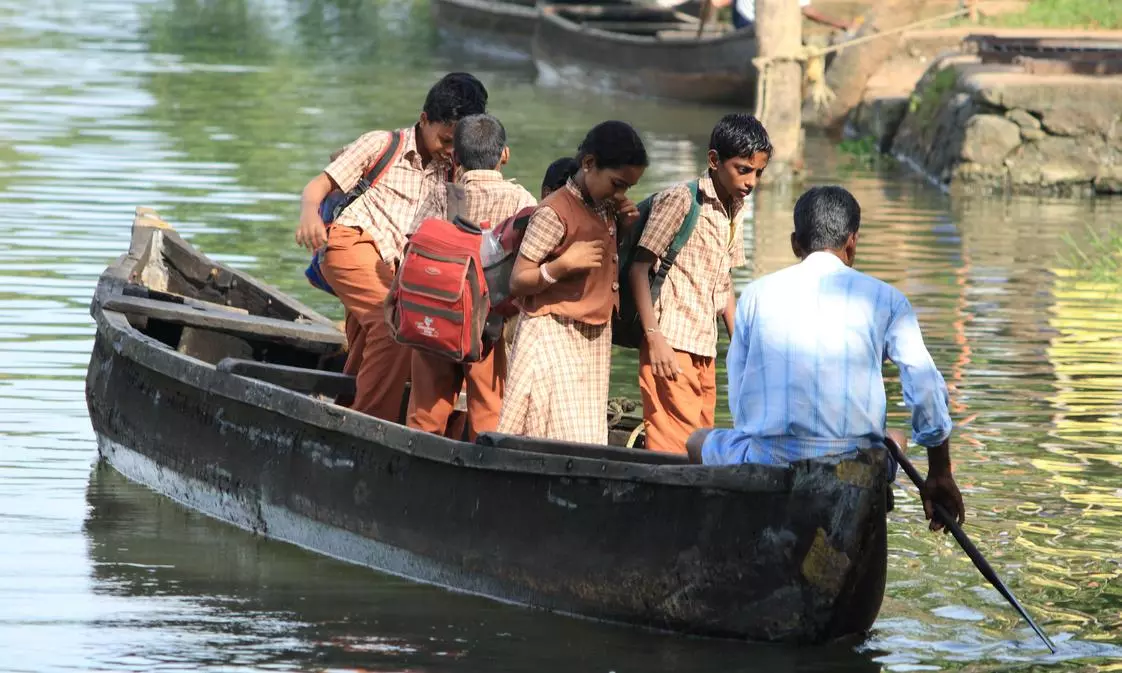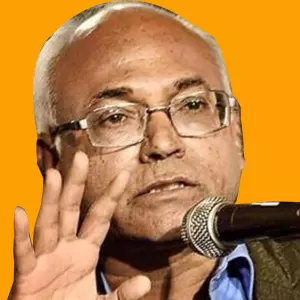
- Home
- India
- World
- Premium
- THE FEDERAL SPECIAL
- Analysis
- States
- Perspective
- Videos
- Sports
- Education
- Entertainment
- Elections
- Features
- Health
- Business
- Series
- In memoriam: Sheikh Mujibur Rahman
- Bishnoi's Men
- NEET TANGLE
- Economy Series
- Earth Day
- Kashmir’s Frozen Turbulence
- India@75
- The legend of Ramjanmabhoomi
- Liberalisation@30
- How to tame a dragon
- Celebrating biodiversity
- Farm Matters
- 50 days of solitude
- Bringing Migrants Home
- Budget 2020
- Jharkhand Votes
- The Federal Investigates
- The Federal Impact
- Vanishing Sand
- Gandhi @ 150
- Andhra Today
- Field report
- Operation Gulmarg
- Pandemic @1 Mn in India
- The Federal Year-End
- The Zero Year
- Science
- Brand studio
- Newsletter
- Elections 2024
- Events
- Home
- IndiaIndia
- World
- Analysis
- StatesStates
- PerspectivePerspective
- VideosVideos
- Sports
- Education
- Entertainment
- ElectionsElections
- Features
- Health
- BusinessBusiness
- Premium
- Loading...
Premium - Events

RSS is operating in subtle mode to ensure modern capitalist wealth does not move away from Brahmin-Bania forces
The Rastriya Swayamsevak Sangh (RSS) has several economists attached to its organisational structures. These economists, such as Ashok Gulati, Ashima Goyal, and Amit Mitra, have a clear stand against agrarian subsidies and are strongly for a highway economy, with a clear bias for monopoly capitalists.
These capitalists are crony in nature and character. These economists formulate policies that push the budget money into the hands of private contractors and recommend that bank loans be written off. Privatisation of state industries at cheaper rates to the monopoly capitalists is their fast growth formula.
They are against reservations for Dalits/Adivasis/OBCs, with a peculiar theory that reservations are anti-merit. This is what I call the Brahmin-Bania Development Model (BBDM).
The RSS is far stronger in northern India than in southern India, particularly Tamil Nadu, Kerala, Andhra Pradesh and Telangana. Karnataka moves back and forth between the Congress and RSS/BJP. In these states, the subsidies to the agrarian and artisan sectors are far higher than in North India, where the RSS has greater influence.
RSS view
The underdevelopment of the agrarian masses in the North is far higher than in the South. The bigger presence of the RSS is a source of North India’s greater poverty and ignorance of people’s welfarism. In southern states the agrarian and artisan Shudra/Dalit/Adivasi communities are far more conscious of their development.
Such southern agrarian and village welfare schemes started in Tamil Nadu. By the 2023 Telangana state elections, the Congress party had to get into the agrarian welfare agenda. The southern model of development with much better distributive welfarism could be called the Shudra Development Model (SDM).
The SDM helps in deconstructing the caste cultural social order. The BBDM is casteist and anti-poor. If the whole of India needs to advance in a modern democratic way, the SDM is most suited.
The RSS and its economists are quite subtly following the Chinese authoritarian model of highway economy with a mix of American free wheeled monopoly accumulation. If the agrarian Shudras/Dalits/Adivasis do not fight this model, the Dwijas of India will destroy the future of the children of the productive masses with their Sanatan Dharma ideology. Sanatan Dharma is at the core of the RSS economists as it was rooted in ancient Sanskrit books that promoted ‘varna dharma’.
Wealth concentration
They have been writing and talking about their Hindutva vision of the Indian economy for a long time. The RSS has been intrinsically associated with priestly and business castes and communities. It has promoted several Brahmins and Baniyas in monopoly capital economic cartels. There has been a massive concentration of wealth in these two communities ever since the RSS/BJP forces came to power.
The RSS has been indifferent to agrarian and artisan economy and the caste communities that operate in that economy. The fundamental production masses being from the Shudra/OBC/Dalit/Adivasi communities, there is a Sanatanic opposition to all these productive communities as Hindu Shastras condemn them as unworthy people, basically meant to serve the three higher varnas — Brahmins, Banias and Ksatriyas. This modern religious organisation follows the injunctions of the Shastras in new and subtle modes.
The RSS chose to promote the wealth concentration in the houses of the Brahmin-Bania business more aggressively than the secular Brahmin-Bania ruling forces that were in power during the Congress regime. The control over the Union government by the Dwija communities is total, whether during the Congress regime or now.
However, the RSS sees the agrarian and artisan sectors as Shudra economic sectors and that Shudras need to produce wealth for Dwija welfare. Since many Sanatana Shastras prohibited wealth ownership by these forces in ancient and medieval times, the RSS is operating in a very subtle mode to see that modern capitalist wealth does not move away from the Brahmin-Bania forces of the country and the Shudra/OBC/Dalit/Adivasis do not take over the Indian capital.
Flaying freebies
The right-wing economists started a campaign in the name of freebies (revdi, in Prime Minister Narendra Modi’s words) promises to farmers, agrarian labour and unemployed youth in the villages. The increased attack on agrarian welfare money transfer programmes and the loan write off schemes accepted by the Congress in the five states in this year's election manifestos irritated the RSS/BJP economists.
The only Shudra economist that the RSS/BJP Union government employed as Governor of the Reserve Bank of India, Urjit Patel, was pushed out within days from that position.
The RSS economists say that freebies given to the rural productive masses will pose a danger to future Indian economy. But the very same economists, who are trying to build a BBDM as the only way of development, with a caste blind economic discourse, are trying to follow the Chinese model of authoritarian highway economy. The Chinese rulers are communist authoritarians while the RSS rulers are caste-communal authoritarians.
This kind of communal model of highway economy in a country of caste-divisiveness will benefit only the top hundred monopoly houses that belong to the Bania-Brahmin English-educated urban mall business exploiters. They leave out the Dalit//Adivasi/OBC agrarian and artisan productive forces with a constant characterisation that they are a lazy lot habituated to eating sitting at home.
Most of the monopoly industrial families are living a life of having breakfast in Mumbai and dinner in London. Yet they are projected as patriots with a commitment to the cause of India’s development.
Favouring big capital
The Hindutva neo-liberal economists are happy with that kind of nationalism, which organises academic conclaves in five-star hotels in India and foreign countries, where there is no Shudra representative, leave alone Dalit/Adivasi representative scholars or economists. They think that farmers’ sons and daughters are unable to understand the Hindutva economic discourse, trained in Harvard or Oxford universities. Their ancient Indian roots are in the economic theories of Kautilya’s Artha Shastra. They do not think that the principle of Matsya Nyaya is not anti-people.
The formulation of Hindutva economists normally is: “No Freebies to Agriculture. The Budget Economy must move on the Highways in Tesla Cars. This is New Nationalism.”
The RSS/BJP Union government writes off lakhs of crores of bank loans when the big business pretends to show that they are in great losses, after transferring massive amounts to foreign banks. Hardly any GST is generated from these big company economies as they keep most of their money in banks or transfer it through hawala to foreign countries.
The Indian RSS/BJP economic and cultural authoritarianism is not strict about the big business free-wheeling of the Indian economy. At will the big businessmen are leaving India and settling down in England or in America or in Canada or in Australia. For them India is too hot a country to live in. No farmer, labourer or artisan from Indian villages is running away to live to foreign countries with stocked hawala money in foreign countries. Yet, the rightwing economists keep advising the RSS/BJP authoritarian rulers that the freebies to the agrarian sector is dangerous because they become lazy. But they think that the big business forces that sport big tilaks on the forehead and celebrate marriages in foreign countries are doing better service to India.
Modi, in a Mann ki Baat episode in a friendly tone, advisesthem to celebrate their marriages in India. But no ED or income tax officials go to their homes and offices to search for hidden wealth.
Casteist ideology
Some time back, Modi said that efforts were being made to bring in the culture of collecting votes by distributing “free revdi” in the country. He warned people against the revdi culture under which votes are collected by promising freebies and said this could be very dangerous for the country’s development.
“Those with revdi culture will never build new expressways, new airports or defence corridors. Together we have to defeat this thinking, remove revdi culture from the politics of the country," said the Prime Minister.
Another important RSS/BJP political economy statement the Prime Minister made was that "we are not the people who will be afraid of standing beside industrialists".
These two above quotes tell us about the pro-monopoly economic and political stand of the RSS/BJP leadership. What he is calling revdi distribution is a known view of the RSS/BJP supporting neo-liberal economists living in India and abroad.
There is a casteist economic ideology seeped in neo-liberal economic thought.
(The Federal seeks to present views and opinions from all sides of the spectrum. The information, ideas or opinions in the articles are of the author and do not necessarily reflect the views of The Federal.)


